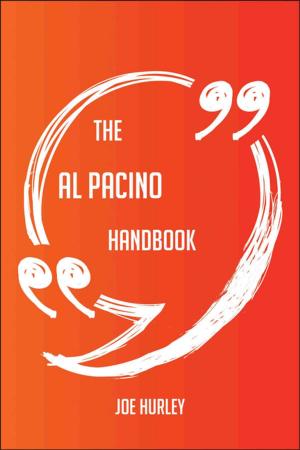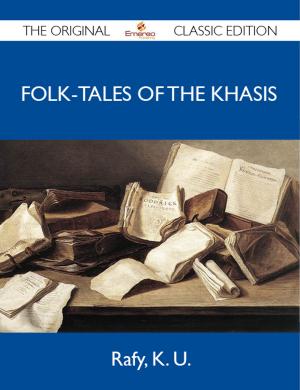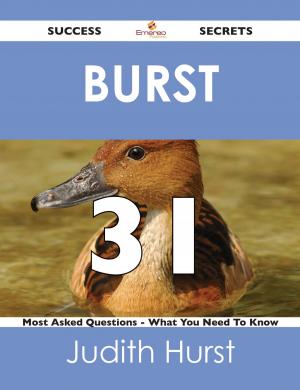Bell's Cathedrals - The Cathedral Church of Hereford - The Original Classic Edition
Nonfiction, Reference & Language, Reference, Fiction & Literature| Author: | Fisher A | ISBN: | 9781486419227 |
| Publisher: | Emereo Publishing | Publication: | October 24, 2012 |
| Imprint: | Emereo Publishing | Language: | English |
| Author: | Fisher A |
| ISBN: | 9781486419227 |
| Publisher: | Emereo Publishing |
| Publication: | October 24, 2012 |
| Imprint: | Emereo Publishing |
| Language: | English |
This is a new and freshly published edition of this culturally important work by A. Hugh Fisher, which is now, at last, again available to you.
Enjoy this classic work today. These selected paragraphs distill the contents and give you a quick look inside Bells Cathedrals - The Cathedral Church of Hereford:
But amongst the general sources of information which have been almost invariably found useful are:-(1) the great county histories, the value of which, especially in questions of genealogy and local records, is generally recognised; (2) the numerous papers by experts which appear from time to time in the Transactions of the Antiquarian and Archæological Societies; (3) the important documents made accessible in the series issued by the Master of the Rolls; (4) the well-known works of Britton and Willis on the English Cathedrals; and (5) the very excellent series of Handbooks to the Cathedrals, originated by the late Mr.
...Under Offa Mercia became the first power in Britain, and in addition to much fighting with the West Saxons and the Kentish men he wrested a large piece of the country lying west of the Severn from the Welsh, took the chief town of the district which was afterwards called Shrewsbury, and like another Severus made a great dyke from the mouth of the Wye to that of the Dee which became henceforth the boundary between Wales and England, a position it has held with few changes to the present day. In church history Offa is of no less importance than in secular, for as the most powerful King in England he seems to have determined that ecclesiastical affairs in this country should be more under his control, or at least supervision, than they could possibly be with the Mercian church subject to the Archbishop of Canterbury.
...Here they began with a victory about two miles from Hereford over the Earl of that shire who was a Frenchman, and tried to make his men fight on horseback in the French fashion, which they did not understand,-the English way being for the great men to ride to the field of battle, but there to dismount and fight with their heavy axes on foot.
...The great central tower, destined centuries later to be a source of such anxiety and a problem of such difficulty to the[pg 014] restorer, was even at this early date showing signs of dilapidation, and Bishop Orleton obtained from Pope John XXII. a grant of the great tithes of Shenyngfeld (Swinfield) and Swalefeld (Swallowfield) in Berkshire, in answer to the following petition:-That they, being desirous of rebuilding a portion of the fabric of the Church of Hereford, had caused much super-structure of sumptuous work to be built, to the adornment of the House of God, upon an ancient foundation; which in the judgment of masons or architects, who were considered skilful in their art, was thought to be firm and sound, at the cost of 20,000 marcs sterling and more, and that on account of the weakness of the aforesaid foundation, the building, which was placed upon it now, threatened such ruin, that by a similar judgment no other remedy could be applied short of an entire renovation of the fabric from the foundation,-which, on account of the expenses incurred in prosecution of the canonisation of Thomas de Cantilupe, Bishop of Hereford, of blessed memory, they were unable to undertake.
This is a new and freshly published edition of this culturally important work by A. Hugh Fisher, which is now, at last, again available to you.
Enjoy this classic work today. These selected paragraphs distill the contents and give you a quick look inside Bells Cathedrals - The Cathedral Church of Hereford:
But amongst the general sources of information which have been almost invariably found useful are:-(1) the great county histories, the value of which, especially in questions of genealogy and local records, is generally recognised; (2) the numerous papers by experts which appear from time to time in the Transactions of the Antiquarian and Archæological Societies; (3) the important documents made accessible in the series issued by the Master of the Rolls; (4) the well-known works of Britton and Willis on the English Cathedrals; and (5) the very excellent series of Handbooks to the Cathedrals, originated by the late Mr.
...Under Offa Mercia became the first power in Britain, and in addition to much fighting with the West Saxons and the Kentish men he wrested a large piece of the country lying west of the Severn from the Welsh, took the chief town of the district which was afterwards called Shrewsbury, and like another Severus made a great dyke from the mouth of the Wye to that of the Dee which became henceforth the boundary between Wales and England, a position it has held with few changes to the present day. In church history Offa is of no less importance than in secular, for as the most powerful King in England he seems to have determined that ecclesiastical affairs in this country should be more under his control, or at least supervision, than they could possibly be with the Mercian church subject to the Archbishop of Canterbury.
...Here they began with a victory about two miles from Hereford over the Earl of that shire who was a Frenchman, and tried to make his men fight on horseback in the French fashion, which they did not understand,-the English way being for the great men to ride to the field of battle, but there to dismount and fight with their heavy axes on foot.
...The great central tower, destined centuries later to be a source of such anxiety and a problem of such difficulty to the[pg 014] restorer, was even at this early date showing signs of dilapidation, and Bishop Orleton obtained from Pope John XXII. a grant of the great tithes of Shenyngfeld (Swinfield) and Swalefeld (Swallowfield) in Berkshire, in answer to the following petition:-That they, being desirous of rebuilding a portion of the fabric of the Church of Hereford, had caused much super-structure of sumptuous work to be built, to the adornment of the House of God, upon an ancient foundation; which in the judgment of masons or architects, who were considered skilful in their art, was thought to be firm and sound, at the cost of 20,000 marcs sterling and more, and that on account of the weakness of the aforesaid foundation, the building, which was placed upon it now, threatened such ruin, that by a similar judgment no other remedy could be applied short of an entire renovation of the fabric from the foundation,-which, on account of the expenses incurred in prosecution of the canonisation of Thomas de Cantilupe, Bishop of Hereford, of blessed memory, they were unable to undertake.















